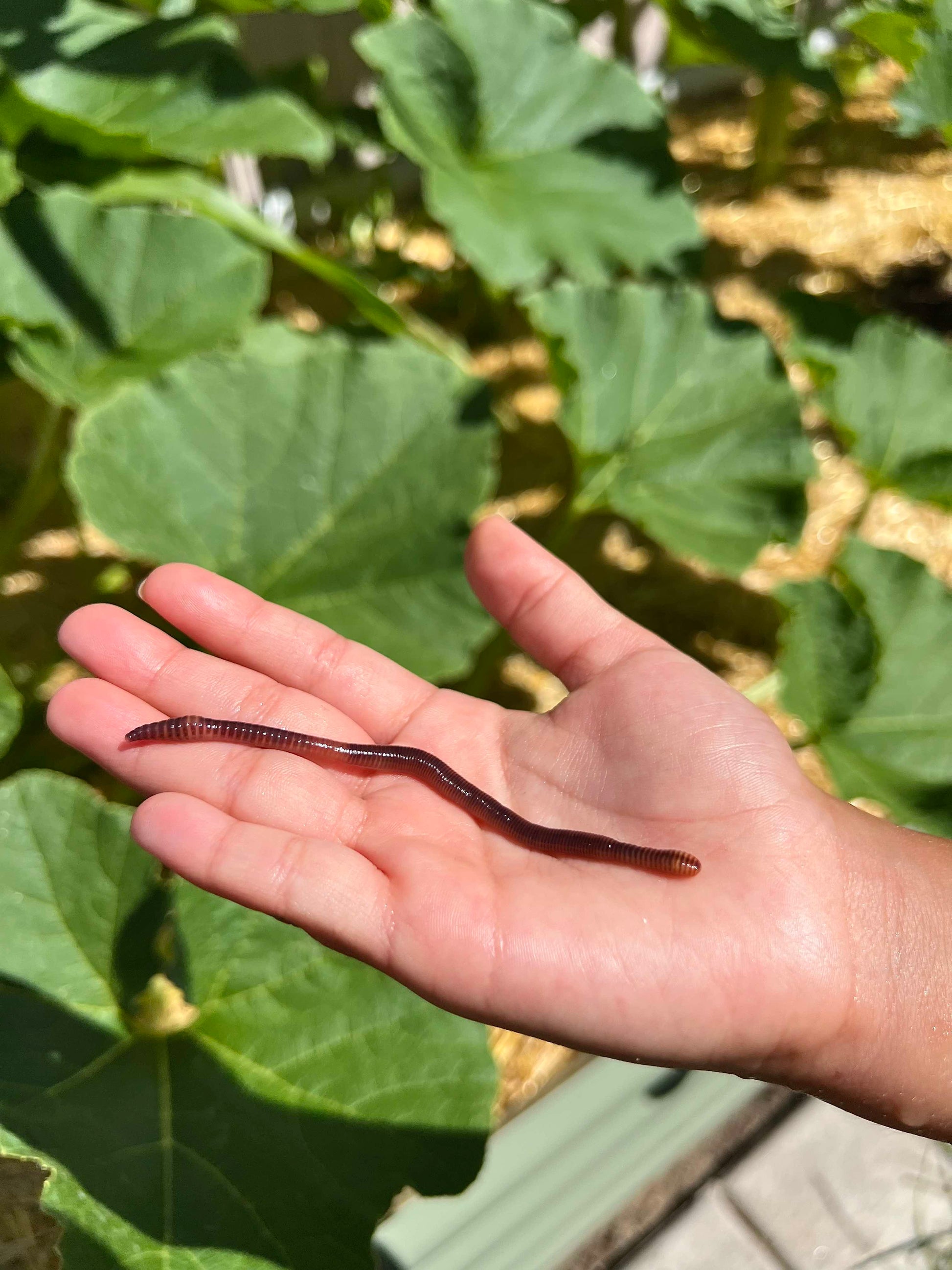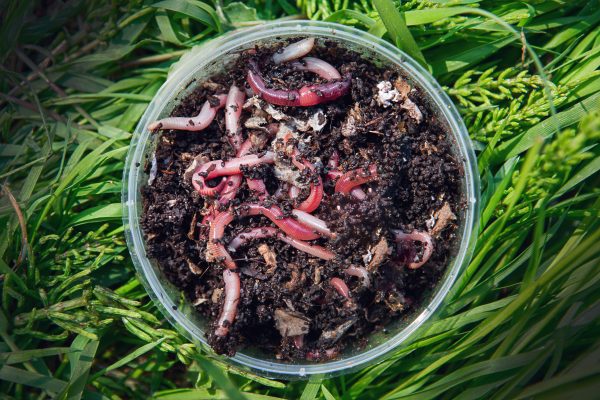Taking Advantage Of the Power of Red Wiggler Composting: A Thorough Appearance at the Environmental and Agricultural Advantages of This All-natural Waste Decrease Method
The technique of red wiggler composting stands for an engaging intersection of environmental stewardship and agricultural development, supplying a lasting service to the expanding difficulties of waste management and dirt degradation. Via the all-natural process of vermicomposting, organic waste is transformed right into a beneficial resource that not just enhances dirt but additionally contributes to a significant decrease in land fill contributions and greenhouse gas exhausts. As we check out the complex advantages of this technique, we reveal just how it can improve farming practices and advertise eco-friendly understanding, prompting a more detailed evaluation of its prospective influence on our neighborhoods and communities.
What Are Red Wiggler Worms?
Red wiggler worms, medically referred to as Eisenia fetida, are a species of earthworm particularly adapted for composting and organic waste malfunction. These worms prosper in the nutrient-rich environment of disintegrating raw material, making them perfect for vermicomposting systems. Growing to a length of around 3 to four inches, red wigglers are characterized by their reddish-brown coloration and unique banding patterns along their bodies.
Unlike other earthworm types, red wigglers prefer to inhabit the upper layers of soil and organic particles, where oxygen degrees are higher and food resources are abundant. Their physical adaptations permit them to process organic materials effectively; they have a strong digestive system that allows them to transform waste into nutrient-rich castings, typically described as "black gold" in horticulture and farming contexts.
Eisenia fetida plays an essential function in the environment by assisting in the disintegration procedure, boosting soil framework, and advertising microbial activity. Offered their special qualities and environmental value, red wiggler worms have actually come to be a central component in lasting waste management practices and natural horticulture efforts, contributing dramatically to ecological wellness.
Benefits for Dirt Health
The addition of red wiggler worms in composting systems provides substantial benefits for dirt wellness. These worms play a critical duty in the decomposition process, damaging down organic issue into nutrient-rich vermicompost. This all-natural plant food enhances soil framework, oygenation, and water retention, adding to an extra positive atmosphere for plant growth.
Vermicompost is abundant in essential nutrients such as potassium, nitrogen, and phosphorus, which are vital for plant growth (Red Wiggler Composting). The presence of useful microbes in vermicompost additionally promotes dirt wellness by enhancing nutrition accessibility and subduing soil-borne microorganisms. This vibrant interaction fosters a robust soil ecological community that supports sustainable agricultural practices
Furthermore, red wigglers promote the formation of humus, a secure organic issue that improves soil fertility and resilience. This raised organic content not only enhances dirt texture yet likewise improves its capacity to withdraw carbon, alleviating environment modification impacts.
Incorporating red wiggler composting into agricultural systems can, as a result, bring about healthier dirts, higher plant yields, and boosted sustainability. Because of this, accepting this all-natural waste reduction method can yield profound advantages for both the setting and farming performance.
Effect On Waste Reduction
Integrating red wiggler worms into composting systems considerably lowers waste, changing natural materials that would certainly or else add to land fills right into useful garden compost. This approach, called vermicomposting, successfully refines cooking area scraps, yard waste, and other naturally degradable products, resulting in a considerable reduction in the quantity of waste sent to garbage dumps. According to the Epa, natural waste consists of a substantial portion of landfill components, producing dangerous greenhouse gases as it disintegrates anaerobically.
By using red wigglers, a highly reliable composting representative, households and businesses can divert a considerable amount of natural waste from these landfills. Each extra pound of red wigglers can refine and eat regarding half an extra pound of organic waste daily, resulting in a remarkable reduction in total waste generation.
In addition, the application of vermicomposting assistances local waste monitoring efforts and promotes a round economic situation, where waste is changed into a resource. As areas progressively adopt this technique, the collective result on waste decrease becomes obvious, fostering an extra sustainable setting and encouraging responsible waste monitoring practices. Welcoming red wiggler composting not just reduces waste issues however also boosts community awareness regarding sustainable living.
Enhancing Agricultural Practices
Utilizing red wiggler worms in farming practices can significantly improve soil health and wellness and plant performance. These worms play an essential duty in the composting procedure, breaking down natural matter into nutrient-rich vermicompost. This all-natural plant food boosts dirt oygenation, water, and framework retention, which are important for durable plant growth.
Furthermore, the spreadings created by red wigglers are abundant in necessary nutrients, such as potassium, nitrogen, and phosphorus, promoting much healthier crops with greater yields. The microbial task promoted by these worms additionally adds to a thriving dirt community, increasing biodiversity and strength against parasites and diseases.

In addition, using vermicompost can improve soil pH degrees, making nutrients much more obtainable to plants. Red Wiggler Composting. Consequently, farmers can cultivate healthier crops while all at once adding to soil conservation efforts, eventually producing a much more lasting agricultural future
Getting Going With Composting
The primary active ingredient in red wiggler composting is natural waste, which can consist of cooking area scraps, lawn waste, and paper products. This balance fosters an ideal environment for red wigglers, which are the essential organisms in this composting approach.
Picking an ideal composting have a peek at this site system is similarly essential. Worm bins can be designed for interior or exterior use, and they ought to provide adequate water drainage and oygenation. It is recommended to begin with a tiny number of worms-- about one pound of red wigglers get redirected here for every one extra pound of waste created weekly.

Final Thought

The method of red wiggler composting stands for a compelling crossway of environmental stewardship and farming advancement, providing a lasting option to the growing obstacles of waste administration and soil destruction.Additionally, the application of vermicomposting supports neighborhood waste management initiatives and promotes a round economy, in which waste is transformed right into a resource. As areas significantly embrace this practice, the advancing effect on waste decrease comes to be obvious, fostering a much more lasting atmosphere and motivating responsible waste monitoring practices. The main ingredient in red wiggler composting is organic waste, which can consist of kitchen click here now area scraps, yard waste, and paper products.In recap, red wiggler composting presents a sustainable remedy for organic waste administration, generating nutrient-rich vermicompost that considerably boosts soil health and wellness.